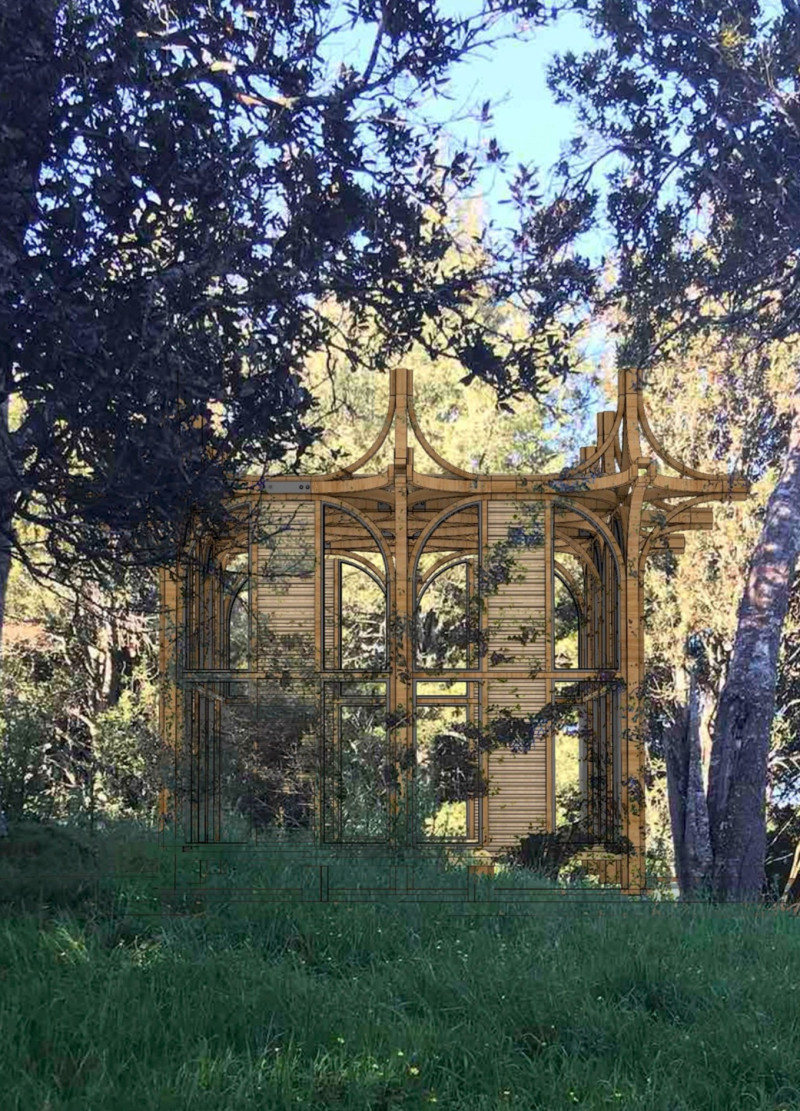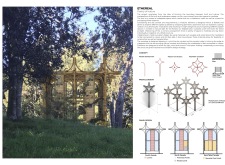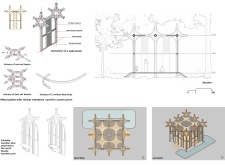5 key facts about this project
"Ethereal: Poetry of Nature" is a project that integrates buildings with the surrounding landscape. It is designed for meditation and for processing flower essence, aiming to create a peaceful space for reflection. The concept emphasizes the connection between constructed spaces and nature, creating an atmosphere that invites quiet contemplation.
MODULAR DESIGN
The project features a modular design that allows flexibility. By using geometric patterns like repetition, scaling, and rotation, the result is a lightweight structure that can be arranged in different ways. This modularity enhances how people interact with the space, making it suitable for various activities.
NATURAL LIGHT UTILIZATION
Natural light is essential to the design. A foldable altar is placed in a way that captures sunlight from the North, making it ideal for meditation and allowing flowers to dry. This focus on natural light helps create a welcoming environment. The layout provides room for both individual and group meditation, promoting a sense of peace and comfort.
MATERIAL SELECTION
The design uses glass and wood, which work well with the natural surroundings. These materials help create a strong connection with the environment while ensuring the structure is sturdy. They also blur the lines between indoor and outdoor spaces, allowing users to feel part of nature without losing the comfort they require.
SENSORY INTEGRATION
The structure is designed with openings that connect it with the landscape. This design choice allows light, wind, and sound to flow freely, enhancing the experience for users. The nearby water bodies emphasize the relationship between the building and the environment, adding another layer of tranquility.
The arrangement of spaces encourages meditation, with a raised structure providing views of the landscape. This design detail enriches the experience, inviting users to engage with their surroundings and allowing nature to play a significant role in the space.






















































